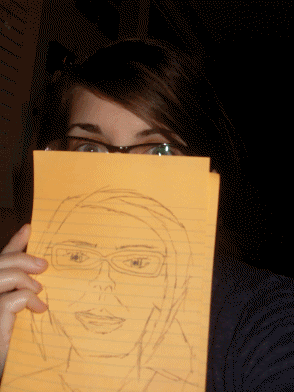*This post was originally started at the end of January... yikes! As of today, I'm at 14 books for the year (which is crazy).

The first book I finished this week is called My Father's Paradise: A Son's Search for His Jewish Past in Kurdish Iraq by Ariel Sabar. This is the third book I've read that's dealt with Israeli/Palestinian relations, although this one does so mostly tangentially.*
In this memoir, author and journalist Ariel Sabar traces the history of his father, Yona, who grew up in Zakho, a small village in the Kurdish region of northern Iraq. What is particularly interesting about Yona's story is that he was raised speaking Aramaic, the ancient language of Jesus, which is now facing extinction. Yona's Jewish family lived peacefully in Zakho, among Muslims, Christians and other Jews. When the fighting and unrest finally reached Zakho, his family moved to Israel. They were filled with hope and expectations but were disappointed by what they found. Yona eventually leaves his family and heads to the US to further his education, becoming a very well respected scholar of Aramaic. Growing up in California, Ariel feels disconnected from his father and his father's past. This book is the exploration of that past and also Ariel's way to rebuild (or simply build) a relationship with his father.
The earlier parts of the book were a little slower for me, as Ariel writes about the history of Zakho and his father's family. My favorite parts came later when Ariel actually travels to Zakho and goes on a quest to solve a family mystery from his father's childhood. This book was a wonderful insight into a world about which I knew almost nothing. I would be interested to read more about the relationships in this area amongst people of different faiths, how they worked together and even depended on each other for their community's well-being and how we can use that example to explore ways of beginning to fix the deep cultural and religious rifts that plague some areas of the world. Overall, I gave this book four stars.
*(The other two, which I highly recommend, are The Lemon Tree: An Arab, a Jew, and the Heart of the Middle East by Sandy Tolan, and I Shall Not Hate: A Gaza Doctor's Journey on the Road to Peace and Human Dignity by Izzeldin Abuelaish.)

The next book I read is called Brain on Fire: My Month of Madness by Susannah Cahalan. I picked up this book because it was the January selection of Avid Bookshop's New and Notable book club. (If you live in Athens, love books and have never been to Avid... please drive, walk or bike there immediately.) The best part about this was that the author actually called in to our book club meeting and fielded questions from us.
As the title suggests, this book recounts Susannah's descent into madness. She's a young journalist at the New York Post when she starts experiencing weird symptoms. She winds up hospitalized, hallucinating, in the throes of psychosis and eventually catatonia. What is wrong with her, where did this come from, can she be cured? Susannah has almost no memories of this period of her life and writes the book as a journalist, interviewing her family, friends and doctors to gain insight into what happened. She was also able to view video footage of herself while in the hospital, which I can only imagine must have felt like watching a stranger who had inhabited your body and been masquerading as you.
I don't want to give away too much of the story but as you can guess (since she was able to write a book about it!) Susannah was cured of her debilitating illness. She does a wonderful job of exploring what happened to her through her many sources and also explains the biology of her brain and illness. I read this book in one sitting and feel so lucky to have been able to hear Susannah speak and answer questions about the process of writing the book and how she's doing now. If you ever have an opportunity to hear her speak, take it! I gave this book five stars.
Still chugging along with:
Salt: A World History (Mark Kurlansky) - 42% (blurgh)
Cloud Atlas (David Mitchell) - 43%
Drinking Water: A History (James Salzman) - 10%
I also finally shuffled all the books that have been stuck on my Goodreads "Currently Reading" shelf that I am not actually actively reading to a "didn't finish" shelf. I feel refreshed.


